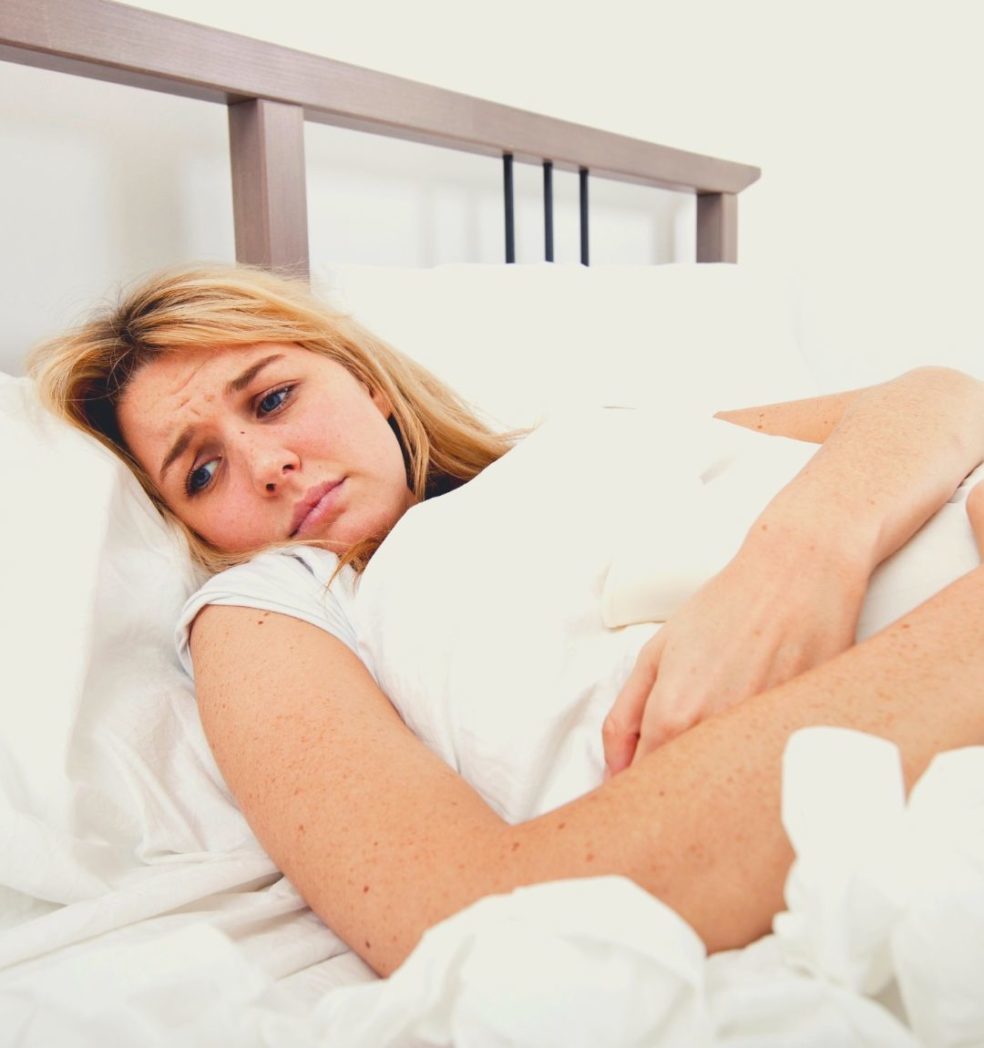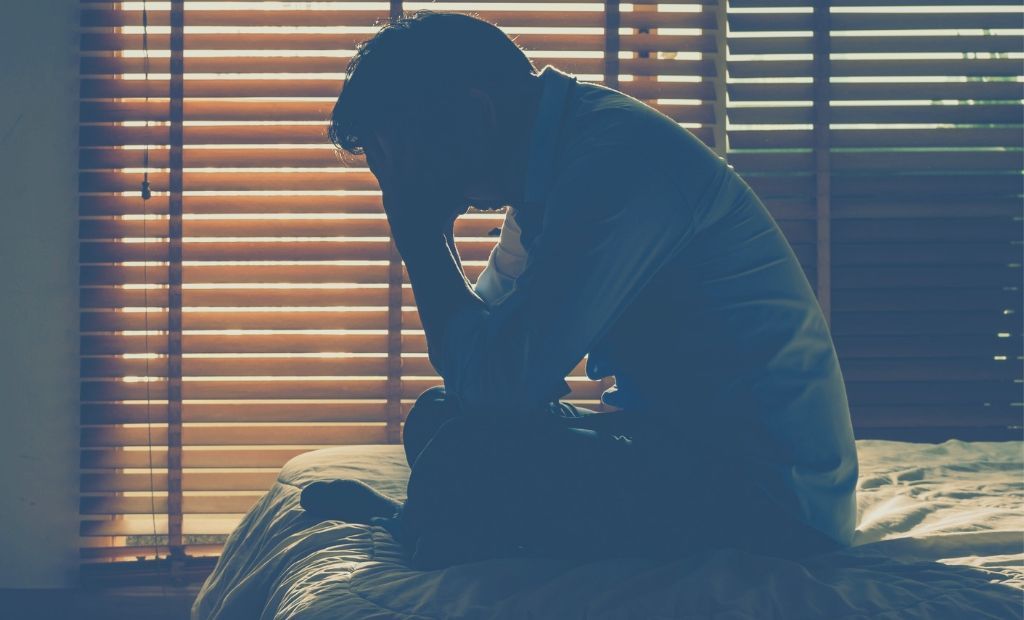There might be affiliate links on this page, which means we get a small commission of anything you buy. As an Amazon Associate we earn from qualifying purchases. Please do your own research before making any online purchase.
Have you ever woken up to discover you wet the bed in your sleep? If so, your first instinct is to wonder what happened. If you’ve been stressed out lately, you might wonder if your anxiety was the cause.
Bedwetting is a problem many adults experience but don’t often talk about. After all, wetting the bed feels embarrassing. We are conditioned to feel shame when we wet the bed, even when the problem is brought on by a physical or mental health condition like stress. Until you feel confident you will not wet the bed overnight, the issue can seriously impact your life.
Here’s the good news: you don’t have to live with embarrassment or bedwetting. When you treat the underlying conditions of bedwetting you can find light at the end of the tunnel.
In this article, you will learn about the role stress plays in adult bedwetting. When you have a clear idea of what it means to declutter your mind, you can eliminate a lot of the anxiety-inducing stimuli from your life.
QUESTION: Can Stress Cause Bedwetting in Adults?
In short, YES, stress can cause bedwetting in adults. In fact, stress is one of several factors that can lead to secondary enuresis. Stress is your body’s reaction to changes and can prompt a physical, mental, or emotional response.
While many symptoms of stress happen because of environmental changes, your thoughts and even your own body can cause stress too. We all experience stress, but the toll it takes on our bodies is different for each of us.
While your body is designed to manage some stress, that does not mean it will not throw off your body’s equilibrium. This often results in a “fight or flight” response that prompts your body to respond as if you were being attacked. The distress can result in chest pain, panic attacks, headaches, and stomach pains.
Of course, for some of us, the biggest side effect of stress happens in the middle of the night as we sleep. Most people might not associate bedwetting with stress because we often think of sleep as the most peaceful part of the day. Unfortunately, our bodies process the events of the day, including stress we experience, as we rest. Sometimes, that comes out in bedwetting.

In most cases, bedwetting does not begin in adulthood. When bedwetting develops over time, it is called secondary enuresis. Research suggests that up to two percent of adults may experience bedwetting. Millions of adults experience anxiety, though most will not experience bedwetting.
For many adults, secondary enuresis is linked to periods of transition. If you recently got a new job or even a promotion, the transition can be difficult enough to cause stress and bedwetting. Other examples of transitions include moving into a new home, ending a long-term relationship, or even having a child. As you can see, even the most positive events can lead to stress and secondary enuresis.
You could also notice that your bedwetting seems to occur more often when you don’t feel safe at home. If you have been in a situation where you had a bad experience with a roommate or you experienced emotional trauma by an intimate partner or family member, you may be more likely to wet the bed.
What Are Other Causes of Adult Bedwetting?
Of course, there are several causes of bedwetting, and stress is only one potential reason the issue arises. In fact, the stress you experience could come from another condition that contributes to secondary enuresis. For this reason, you should always talk to your doctor if you suddenly begin to wet the bed.
Some of the other causes of adult bedwetting have a physical component. For example, you could wet the bed because of a blocked urinary tract, kidney stone, or small bladder. People with diabetes, enlarged prostates, sleep apnea, hormonal disorders, and neurological disorders may also be more prone to bedwetting than others.
If you are already being treated for a medical issue, that could actually be part of the cause as well. For example, bedwetting is a side effect associated with some prescription medications. These are issues you should certainly bring up with your doctor.
How Can You Treat Adult Bedwetting?
One of the biggest reasons why bedwetting goes undiscussed is that patients are often embarrassed to bring up their symptoms to the doctor, and doctors often don’t ask about bladder health and bedwetting during a standard exam. Many people think of bedwetting as infantile, as if it is a bad habit. The truth is that bedwetting is often linked to a variety of other factors you simply can’t help.
You don’t have to live with stress-related bedwetting. Treatment for this problem typically involves looking at the underlying issues.
The first thing a physician will do is determine the cause the cause of your bedwetting, possibly with a physical examination, urologic tests, and neurological evaluation. The doctor might also want to test your hormone levels to look for any irregularities.
If the doctor feels you may benefit from medication, he or she may prescribe oxybutynin, which decreases muscle spasms caused by the bladder, especially in the middle of the night. Other medications, like desmopressin, suppress the amount of urine your kidneys produce.
All the typical stress-reduction techniques apply when you want to curb bedwetting as well. Exercise, meditate, and go to yoga class to promote feelings of relaxation. Physical activity is a great deterrent against bedwetting, especially if you build a solid routine.
Many people who experience stress like to ground themselves with peaceful mantras and quotes. When you feel the stress of the day’s events getting to you, repeat a helpful mantra you connect with. Write it down and pin it somewhere you can see it frequently, or use it during your meditation to ground yourself.
You can try everything from stress balls to at-home massage sessions. Mental health treatment, including therapy, can work wonders for stress reduction as well. Try a few different stress-relief techniques to see what works best for you.
While many people prefer to keep bedwetting a secret, your best bet could be to tell your loved ones about your condition. Social support is a great help for relieving the stress of feeling that you have to keep a secret.
You may also see a decrease in how often you experience secondary enuresis when you drink less alcohol and caffeine. These drinks often irritate the bladder and increase the frequency at which you feel you need to urinate. Plus, some people see an increase in their stress and anxiety levels when they consume alcoholic and caffeinated beverages.
What Are the Repercussions of Bedwetting?
Unfortunately, many of the issues that stem from bedwetting only amplify your stress. After all, the feeling of waking up and discovering you have wet the bed is not particularly conducive to a relaxing and carefree environment.
For example, bedwetting means you frequently have to change your sheets and other bedding. Washing loads of laundry each day is certainly not a fun experience, and you may have to buy several sets of sheets so you can change them in the middle of the night as needed.

Have you ever decided not to go on a fun vacation with friends because you thought you might wet the bed? Have you avoided going away for business because you thought you might have an embarrassing incident? When wetting the bed is a problem you experience regularly, you miss out on social and professional opportunities.
Bedwetting can impact your self-esteem too. You might feel poorly about yourself because of the shame bedwetting tends to cause, even though what you are experiencing is not shameful.
You also cannot discount that fact that bedwetting can become expensive. When you have to replace bedding and buy protective covers for your bed and mattress, the costs start to become a burden.
Personal relationships can also suffer when you wet the bed frequently. If you have a romantic partner, you might choose not to share a bed. You might avoid staying the night with your partner because you do not want him or her to know that you are dealing with this stressful issue.
Finally, wetting the bed can certainly impact your sleep patterns. As you may already know, sleep is not optional if you want to perform at your best. When you wet the bed, you might wake up right away. You have to strip the bed, replace your bedding, and then try to fall back asleep each night this happens.
Final Thoughts on Stress and Bedwetting
For all these reasons, you cannot afford not to relieve stress and eliminate secondary enuresis. Lack of sleep, low self-esteem, and worsening relationships with those you love can actually make the problem worse if they contribute to your current stress levels. This is a problem you do not have to live with.
Declutter Your Mind offers actionable tips you can use to relieve anxiety and ease worry. When you free your mind of the many factors that lead to stress, and potentially bedwetting, you see the benefits emerge in many different aspects of your life. Say goodbye to bedwetting and hello to relief from stress.
Can stress cause bedwetting in adults?
Yes. But does it have to? No. When you understand how to reduce anxiety and stress in your life, you see the results in your sleep quality and the relief you feel when you wake up dry.
And if stress is a major issue in your life, then check out these 25 simple living tips to reduce your stress levels.
Finally, one proven way to improve your happiness and life satisfaction is to focus on goals that truly matter. To get started, check out this FREE printable worksheet and a step-by-step process that will help you set effective SMART goals.


